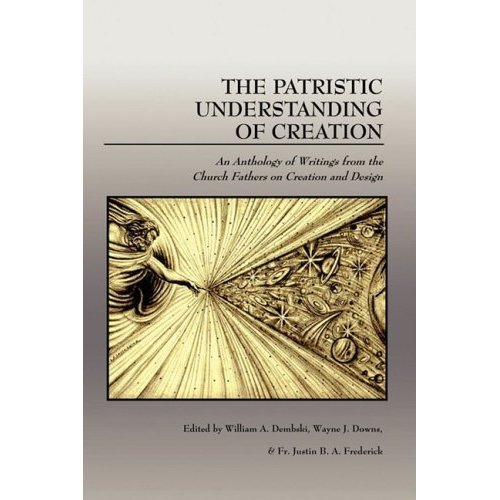The Patristic Understanding of Creation — now available!
An anthology that I started ten years ago is, with the help of two good friends and colleagues, finally out. It is titled The Patristic Understanding of Creation: An Anthology of Writings from the Church Fathers on Creation and Design and can be ordered here. For the table of contents, go here. This is the first book from my own imprint, Erasmus Press (www.erasmuspress.net). The plan is to publish books, journals, and curriculum materials through it — despise not the day of small beginnings! Here is the cover illustration. Further down is the preface.

PREFACE
This anthology might have been published in 1998. Instead, it now appears in 2008, ten years later. For many books, ten years is an eternity and spells the difference between a book that is current or passé. Fortunately, the writings of the Church Fathers are of perennial interest. Going back to Roman and Byzantine times, these writings are basic to Christian theology and have set the standard for how Christians understand creation.
The need for this anthology has persisted – and indeed grown more urgent – in the years since it was first conceived. In the summer of 1998, the journal Origins & Design published a dialogue featuring Jonathan Wells, John Mark Reynolds, and Howard Van Till (available online at www.arn.org/odesign/od191/od191.htm). Van Till, in the mid-1990s, had published a number of articles arguing for creation’s “functional integrity,” by which he meant that God, in creation, had given the world all the capacities it needs to organize and transform itself.
Van Till’s bogey, throughout these discussions, was what he called “extra-natural assembly” – that God subsequent to creation needed to intervene for nature to accomplish things that, left to herself, nature could never do. For Van Till, a world requiring extranatural assembly is unworthy of the deity. More worthy, according to him, is for God to create a world that is “fully gifted” with all the capacities it might ever need to accomplish God’s purposes. Van Till portrays a God who creates a world that, once created, requires further intervention as a miser: such a Creator ungenerously withholds from the world capacities that it might usefully have possessed to carry out its business (which Van Till calls its “formational economy”).
Read More ›